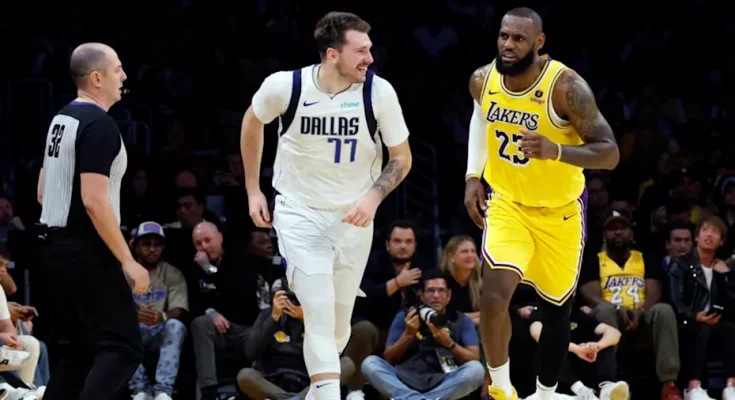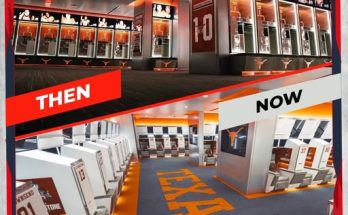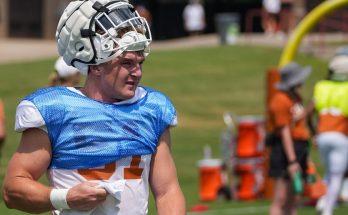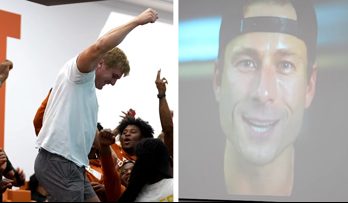The Los Angeles Lakers have taken a bold step in their approach to Luka Doncic, allowing the superstar to operate in ways the Dallas Mavericks never did. This shift has not only ignited fresh excitement around the Lakers but also sparked discussions about how empowering a player like Doncic with greater freedom can reshape a team’s dynamics and competitive edge. Understanding this transformation requires delving into Doncic’s journey, the Mavericks’ management style, and the Lakers’ fresh philosophy that could elevate both the player and the franchise to new heights.
Luka Doncic’s rise to stardom has been one of the most captivating stories in modern NBA history. Since his debut, Doncic has showcased an uncanny ability to control the pace of the game, manipulate defenses, and create scoring opportunities both for himself and his teammates. His blend of size, vision, and basketball IQ is rare, and his highlight reels often feature buzzer-beating shots, step-back threes, and slick passes that defy logic. Despite his undeniable talent, Doncic’s time with the Dallas Mavericks was marked by constraints that arguably limited the full extent of his impact.
During his tenure in Dallas, Doncic was the undisputed centerpiece of the Mavericks’ offense, yet the team’s strategy often emphasized a traditional, structured approach that placed limits on his creativity. Mavericks head coaches and management tended to favor set plays, defined roles, and a system designed to maintain order rather than unleash chaos. This approach sometimes hindered Doncic’s natural game, which thrives in improvisation and reading defenses on the fly. The Mavericks’ roster construction and game plans often leaned on surrounding Doncic with role players expected to fit specific molds, but the level of offensive freedom he enjoyed was arguably less than what his skill set demanded.
The Mavericks’ hesitancy to fully empower Doncic could be traced to their desire for balance and control, as well as pressure to build a winning culture quickly. They experimented with rotations, bench roles, and supporting casts but remained anchored in a philosophy that prized discipline over creative liberty. This approach, while grounded in sound basketball principles, led to frustrations as Doncic pushed for more control, often carrying the team in clutch moments without consistent system support. The limitations sparked debates among analysts and fans about whether Dallas was truly maximizing Doncic’s potential or if they were holding him back.
Enter the Los Angeles Lakers, a franchise with a storied history and a recent resurgence in their approach to star players. The Lakers’ management and coaching staff recognized the unique nature of Doncic’s game and took the risk to loosen the reins significantly. By allowing Doncic to “operate” with greater freedom, the Lakers have essentially embraced a modern basketball ethos that prioritizes player creativity, fluid offense, and adaptability. This shift is not just about giving Doncic the ball more often but about trusting his instincts, empowering him to dictate plays in real-time, and surrounding him with teammates who can complement his dynamic style.
This change has multiple dimensions. First, the Lakers have adapted their offensive schemes to revolve around Doncic’s strengths, including his exceptional passing ability and clutch scoring. Rather than relying solely on set plays, the Lakers encourage Doncic to read the defense, exploit mismatches, and initiate improvisational sequences. This freedom allows him to be unpredictable, keeping opponents on edge and opening opportunities that a rigid system might miss. The Lakers’ coaches understand that for a player of Doncic’s caliber, strict rules can stifle performance, so they’ve chosen to trust his basketball instincts.
Second, the Lakers have altered their roster construction to complement Doncic’s style. This means surrounding him with versatile, high-IQ players who excel in off-ball movement, spacing the floor, and capitalizing on the opportunities he creates. Unlike the Mavericks’ more traditional supporting cast, the Lakers’ roster is designed to be fluid and reactive, blending shooting, defense, and playmaking in ways that harmonize with Doncic’s game. The goal is to create an environment where Doncic’s influence magnifies rather than conflicts with his teammates, fostering chemistry and maximizing output.
Additionally, the Lakers’ front office and coaching staff have invested in advanced analytics and player development resources to track Doncic’s impact and optimize lineups. This data-driven approach helps identify the best combinations on the floor and tailor strategies that suit his playing style. By marrying cutting-edge technology with a player-first philosophy, the Lakers have crafted a system that nurtures Doncic’s growth and success. This is a stark contrast to the Mavericks, who, despite having access to similar tools, seemed more rigid in their application.
The result of this newfound freedom is already visible on the court. Doncic appears more confident, more aggressive, and more engaged in the Lakers’ offense. His ability to create plays for himself and others has surged, leading to improved statistics across scoring, assists, and efficiency. The Lakers have become a more dynamic team, capable of overcoming tough defensive setups and adapting mid-game to exploit opponents’ weaknesses. Fans and analysts alike have noted a renewed energy surrounding Doncic’s play, with many suggesting this could be the key to unlocking championship potential.
Moreover, this approach also benefits the Lakers beyond individual performance. It fosters a culture of trust and respect, where star players are valued not just for their raw talent but for their basketball intelligence and leadership. This environment can attract other high-profile players eager to join a team that empowers its stars rather than constrains them. The Lakers, known historically for accommodating superstars, are reasserting their identity as a franchise where elite players can thrive on their terms.
However, giving Doncic this level of autonomy is not without risks. Allowing a player to operate with fewer restrictions can sometimes lead to over-reliance, creating situations where the offense becomes predictable or stagnant if the star has an off night. It requires a delicate balance between freedom and structure, ensuring that team cohesion is maintained and other players remain engaged. The Lakers’ coaching staff must carefully monitor game flow, manage minutes, and adjust tactics as necessary to avoid potential pitfalls.
There is also the question of Doncic’s ability to handle the pressure and responsibility that comes with such freedom on a franchise as historically high-profile as the Lakers. The spotlight in Los Angeles is intense, and expectations are sky-high. While Doncic has demonstrated maturity and leadership in Dallas, the challenge of sustaining excellence with greater responsibility will test his growth both on and off the court.
In contrast, the Mavericks’ approach, while more conservative, had its merits. A structured system can provide consistency, clarity of roles, and reduce the mental load on a young player. It can prevent burnout and help integrate role players more effectively. The Mavericks’ cautious style reflected a commitment to building a balanced team rather than relying solely on one superstar. Yet, as Doncic’s game evolved, it became clear that the constraints limited his full potential, sparking the move toward the Lakers’ more liberating environment.
Looking ahead, the Lakers’ experiment with giving Doncic unprecedented freedom could set a new standard in the NBA for how to manage and maximize superstar talent. Other teams may study this model, realizing that unlocking a player’s full creative capacity can yield significant dividends, even if it requires sacrificing some traditional control. The success of this approach could inspire a broader shift toward more flexible, player-centric systems that prioritize individual brilliance within a cohesive team framework.
In summary, the Los Angeles Lakers’ decision to allow Luka Doncic to operate in ways the Dallas Mavericks never did represents a transformative moment for both the player and the franchise. By embracing a philosophy of freedom, trust, and creativity, the Lakers have unlocked new dimensions of Doncic’s game, energizing their offense and raising expectations for future success. While challenges remain in balancing autonomy with team dynamics, the initial results are promising and suggest that this new era could redefine how superstar players are empowered in the NBA. Luka Doncic’s journey with the Lakers is just beginning, and if this freedom continues to fuel his evolution, it could lead to a dominant, exciting chapter in basketball history.



